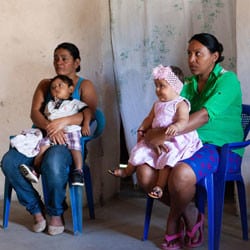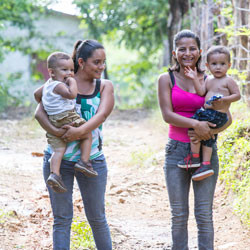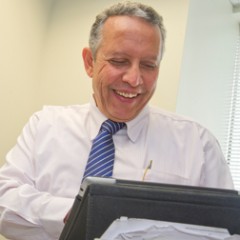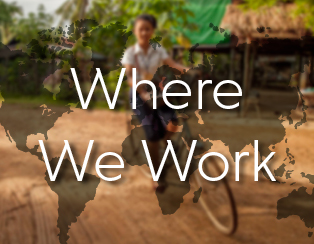HONDURAS
Dry Corridor Alliance
To access a storymap to showcase Honduras Dry Corridor Alliance’s impact, click here
When the El Niño weather phenomenon swept through the Pacific in 2015 and 2016, it hit large expanses of Central America with the most severe drought in decades, exacerbating the already precarious situation across Honduras’s “Dry Corridor,” a climate-fragile and impoverished stretch of land spanning Central America’s Pacific Coast.
The five-year Honduras Livelihoods and Food and Nutrition Security in the Dry Corridor (ACS-GAFSP) project aims to enhance human capital and productive capacity and to diversify livelihoods and build resilience of 6,000 poor and extreme poor families in 12 municipalities in the eastern Dry Corridor departments of Choluteca and El Paraíso.
Creative Associates International is implementing the project in partnership with INVEST-Honduras.
The project is funded by the Global Agriculture and Food Security Program through the World Bank. It is part of the larger Alliance for the Dry Corridor, which aims to lift 50,000 families out of extreme poverty and reduce under-nutrition by 20 percent in target communities.
A major focus of the project centers on food production and income generation, seeks to increase families’ income and access to quality, nutritious foods. ACS-GASFP also includes water, sanitation and health interventions in selected households whose families experience extreme poverty conditions.
The project will help families craft business and food security plans and share best agricultural practices, including irrigation, fertilization and production diversification. These efforts will allow participants to reach a higher level of food and agricultural production so that they can emerge from subsistence agriculture and diversify production with high-value crops like vegetables and perennials.
Working with the private sector, the project will strengthen value chains and create opportunities for families to sell their products, including through the establishment of community markets.
In addition, the Dry Corridor project will reach thousands of households with nutritional and hygiene education, with a focus on pregnant women and children under five years of age.
The project will help families adopt healthy hygiene practices and diets – with help from expanded food production – through communication campaigns, outreach centers and community networks, and by strengthening existing programs and services.
According to the World Bank, 58 percent of children under age 5 in the Dry Corridor suffer from chronic malnutrition, characterized as underweight, with stunted growth, and with micronutrient malnutrition.
The project will raise awareness about malnutrition and its consequences and educate families, health workers and community leaders on how to prevent chronic malnutrition.
The creation of 275 school gardens will create a nutritious and diverse food source for the community, teach children about growing and consuming high-value foods and hygiene, and provide children with a snack during the school day.
In addition, project-supported updates to water filtration systems, kitchen appliances, and bathrooms will reduce the risk of chronic illness, which can counteract any benefits of improved nutrition.
Advances in food production and nutrition will help lay the groundwork for continued growth in this rural area and improve livelihoods for thousands of people.
SPECIAL REPORT
Meet the smallholder farmers and young mothers in Honduras’ Dry Corridor who are receiving training and assistance to combat food and water insecurity and improve health and nutrition.
FEATURED NEWS

Creative Chats: Food Security and COVID-19 in the Dry Corridor
Creative VP Jim Winkler and project director Dan Mooney discuss food security and the importance of bringing technical assistance to farmers in an already fragile environment. Learn More...

Empowering women in agriculture in rural Honduras
Dry Corridor Alliance Gender Advisor Yajaira Hernandez discusses the challenges rural women in Honduras face and how the program is working to overcome these barriers. Learn More...






